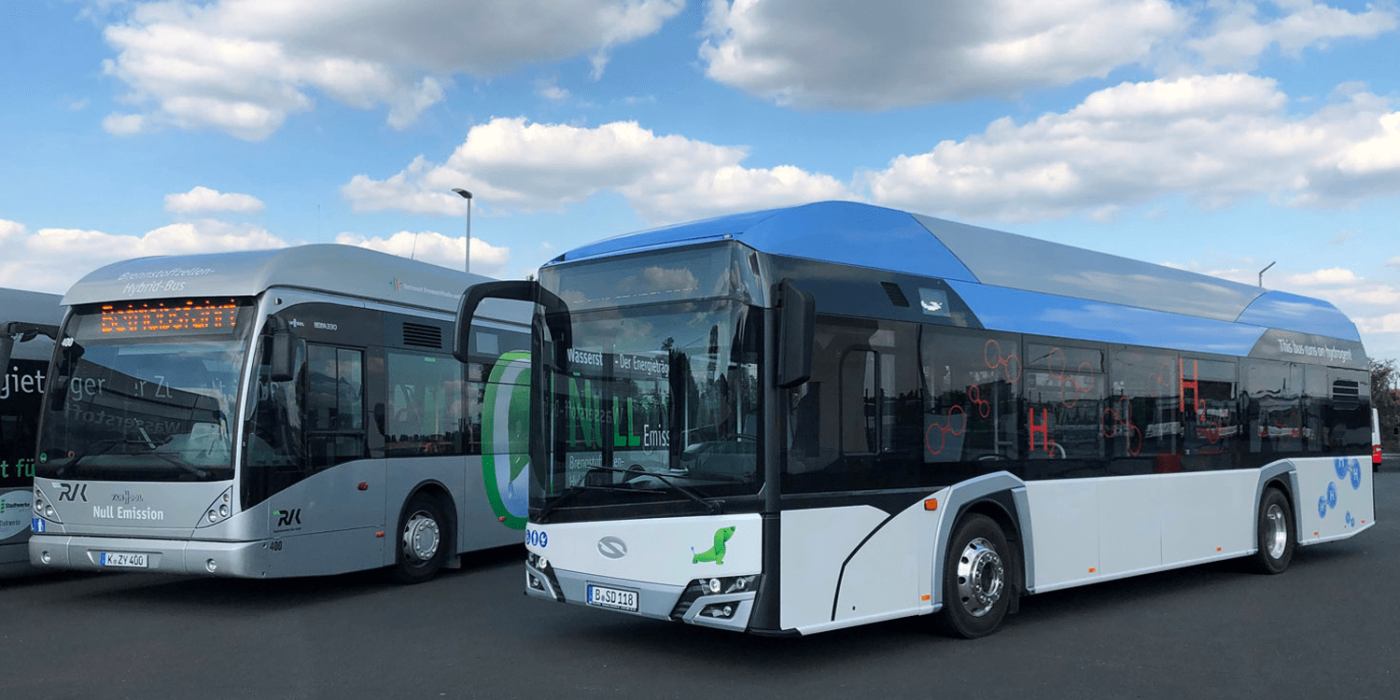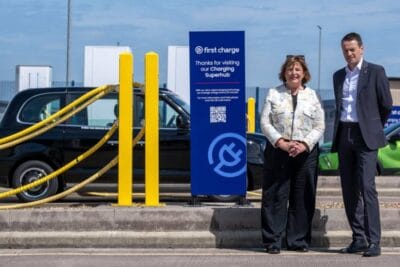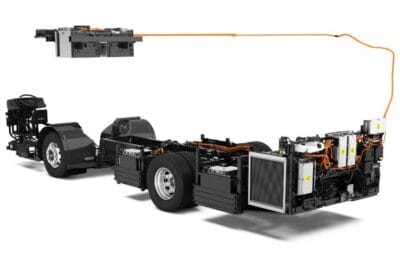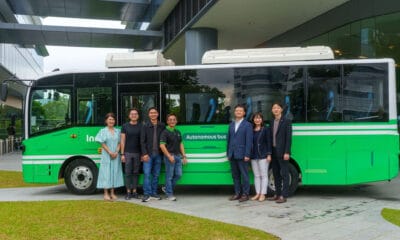Transit operator RVK turns to fuel cell buses
In Germany, Cologne-region public transport operator Regionalverkehr Köln (RVK) has increased its fuel cell bus fleet with hydrogen buses from Solaris. From 2021, 15 Solaris hydrogen fuel cell buses will be successively integrated into RVK’s fleet.
++This article has been updated below. ++
The Solaris buses will join fuel cell buses from Van Hool, to make a total of 52 fuel cell buses by the end of 2021 or early 2022. RKV says that this is Europe’s largest fleet of hydrogen-powered fuel cell hybrid buses.
The public transport operator began with FCEVs in 2014 when two prototype fuel-cell buses were tested. Following these tests, two pre-series vehicles were deployed. More recently, at the end of 2019 and in the first half of 2020, 35 series-production vehicles of the type A330 FC from Van Hool were commissioned.
Now the Cologne-based company has also decided to opt for the Urbino 12 hydrogen, which was presented in June 2019. The fuel-cell electric bus features a 60 kW fuel cell and an additional battery that can be charged by recuperation, via the fuel cell. The bus is driven by an axle with two integrated electric motors, each with an output of 125 kW. Solaris states a range of up to 350 kilometres. The five hydrogen tanks can store a total of 36.8 kg.
According to the RVK announcement, the fuel cell buses were purchased within the framework of the EU project JIVE 2 and were also supported by the Federal Ministry of Transport via the NIP2 programme and also by the Ministry of Transport of North Rhine-Westphalia. The results of the JIVE 2 project also recently enabled the Scottish city of Aberdeen to acquire double-decker hydrogen fuel cell buses and infrastructure.
The procurement of Cologne’s fuel cell buses from Solaris was again jointly carried out with the city of Wuppertal, making it possible “to comply with the maximum price per bus of 625,000 euros specified by the funding authority”, according to RVK. “Thanks to the subsidies and the approval of our owners, we are very much closer to a cross-location restructuring of the bus fleet and infrastructure,” says RVK Managing Director Eugen Puderbach. “This is currently unique in this dimension,” he says.
In the context of the Europe-wide invitation to tender, the German public transport company received three available offers and awarded the contract to Solaris.
Update 03 May 2020: The procurement of hydrogen buses by Regionalverkehr Köln (RVK) is much more extensive initially published. As the transport company now announces, the district has approved the acquisition of up to 36 additional hydrogen buses by RVK and the construction of a new depot. The fuel cell vehicles are to be purchased between 2020 and 2023. The site for the planned depot has also already been found in the city of Bergisch Gladbach.
However, details on the tender for the fuel cell buses and the exact requirements are not yet known. The Rheinisch-Bergisch district expects additional costs of 145,000 euros per vehicle in 2020 compared to a diesel bus.
rvk.de (in German), sustainable-bus.com (update 03 May)





0 Comments